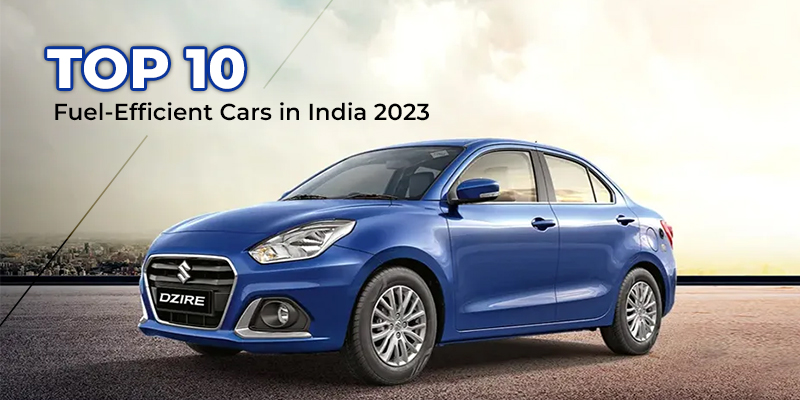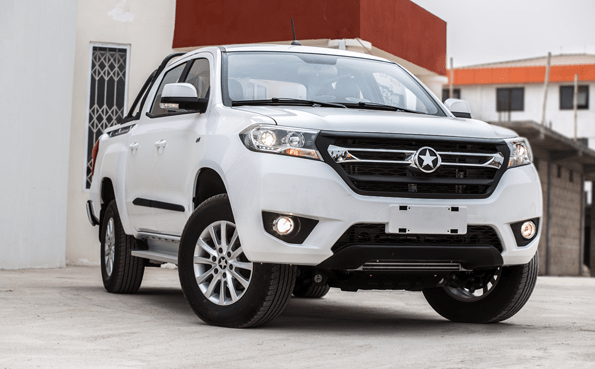
Top 10 Fuel-Efficient Cars in India 2023
The phrase “Kitna Deti Hai?” holds a special place in the minds of Indian New Car buyers, as it signifies more than just words; it embodies a sentiment deeply ingrained in the Indian car market and its discerning buyers. Fuel Efficient Cars.
In a time with unpredictable fluctuations in fuel prices, fuel efficiency has risen to the forefront as a critical consideration for a substantial portion of potential car purchasers.
However, nowadays Whether it’s an entry-level hatchback, a sleek sedan, or a versatile MPV, fuel efficiency has witnessed a remarkable increment over the years.
This transformation is largely attribute to cutting-edge technologies, including hybrid engines and innovations like Volkswagen’s ACT (Active Cylinder Management) technology which reflects the manufacturers’ determined efforts to push the boundaries of fuel efficiency.
Take a look at our comprehensive guide to the most fuel-efficient new cars in India.
Maruti Grand Vitara/Toyota Urban Cruiser Hyryder – 27.93 kmpl– fuel efficient
In the Indian car market, the Grand Vitara and the Toyota Urban Cruiser Hyryder stand out as a vehicle with exceptional fuel efficiency.
Their remarkable efficiency attribute to a highly effective 1.5-liter, four-cylinder petrol engine, which is couple with an electric motor and is seamlessly integrate with an e-CVT gearbox.
Moreover, these two SUVs, although distinct in appearance, share the same core powertrain, boasting an ARAI-certified fuel efficiency of 27.93 kilometers per liter.
Honda City e: HEV (Hybrid) – 27.13 kmpl– Fuel Efficient
In the Indian automobile market, the Honda City e:HEV is the first mass-market model to introduce a robust hybrid powertrain.
The Honda City e:HEV is propel by a 1.5-liter, four-cylinder petrol engine, paired with two electric motors: one dedicated to battery charging and the other responsible for driving the front wheels.
Besides, this setup seamlessly integrated with an e-CVT transmission; the city boasts an impressive ARAI-rated mileage of 27.13 kilometers per liter.
Maruti Suzuki Celerio- (26.68 kmpl petrol/ 35.6 km/kg CNG)
As of now, the Maruti Suzuki Celerio stands out as the most fuel-efficient pure-petrol car, running on a 1.0-liter petrol engine.
The manual version of the Celerio boasts an ARAI-certified fuel economy of up to 25.24 kilometers per liter, while the AMT automatic variant surpasses this with an impressive 26.68 kilometers per liter in claimed fuel efficiency.
The CNG variant of the Celerio attains an impressive fuel efficiency of 35.6 km/kg.
Hyundai Grand i10 Nios – (26.2 kmpl diesel/ 20.70 km/kg CNG)
The Hyundai Grand i10 Nios offers a versatile range of engine options, including 1 Diesel Engine, 2 Petrol Engines, and 1 CNG Engine.
In terms of fuel efficiency, the Manual Petrol variant and the Automatic Petrol variant both provide an impressive mileage of 20.7 kilometers per liter.
For those seeking a diesel option, the Hyundai Grand i10 Nios Manual Diesel variant and the Automatic Diesel variant deliver a commendable mileage of 26.2 kilometers per liter.
Additionally, the Grand i10 Nios Magna CNG variant showcases an ARAI-certified mileage of 20.70 kilometers per kilogram.
Maruti S-Presso – (25.30 kmpl Petrol /32.73 km/kg CNG) Fuel Efficent
The Maruti S-Presso caters to budget-conscious individuals who desire a tall driving position and enhanced ground clearance.
In simple terms, it’s like a hatchback but with a pseudo-SUV stance and offers excellent mileage.
The Maruti S-Presso is equip with a 1.0-liter, three-cylinder petrol engine, providing an ARAI-certified fuel efficiency of 24.76 kilometers per liter in the manual version and an even more impressive 25.30 kilometers per liter in the automatic variant.
If you opt for the CNG version, the S-Presso achieves an impressive mileage of 32.73 km/kg.
Maruti Suzuki WagonR – (25.19 kmpl Petrol/ 34.05 km/kg CNG)
The tall-boy-design Maruti Suzuki Wagon-R is offered with two petrol engine options: a 1.0-liter, three-cylinder petrol engine, which delivers a claimed fuel efficiency of 24.35 kilometers per liter in the manual version and 25.19 kilometers per liter for the automatic variant.
Additionally, there’s a larger 1.2-liter, four-cylinder engine that offers an impressive average fuel efficiency figure of 23.9 kilometers per liter. As per ARAI, the Wagon R CNG achieves a mileage of 34.05 km/kg.
Maruti Suzuki Alto K10 – (24.9 kmpl petrol/ 33.85 km/kg CNG)
The Maruti Suzuki Alto K10 is presently one of the most budget-friendly and fuel-efficient cars available in India.
It is equipped with a 1.0-liter, three-cylinder engine, delivering an ARAI-claimed fuel efficiency of 24.39 kilometers per liter for the manual version, while the automatic version offers a mileage of 24.9 kilometers per liter.
The CNG version of the Alto K10 achieves a reported fuel efficiency of 33.85 kilometers per kilogram.
Maruti Suzuki Dzire – (23.69 kmpl petrol/ 31.12 km/kg CNG)
When it comes to compact sedans, the Maruti Suzuki Dzire emerges as the top pick for fuel efficiency in the market.
It shares the identical 1.2-liter, four-cylinder petrol engine found in the Swift.
The manual version of the Dzire showcases an ARAI-certified fuel efficiency of 23.26 kilometers per liter, while the automatic variants achieve a solid mileage of 24.12 kilometers per liter.
Notably, the CNG variants of the Maruti Suzuki Dzire offer an exceptional mileage of 31.12 kilometers per kilogram.
Maruti Suzuki Swift – (24.12 kmpl petrol/ 30.90 km/kg CNG)
The Maruti Suzuki Swift is equipped with the same 1.2-liter, four-cylinder engine that is utilized in several other Maruti Suzuki models.
The manual version of the Swift exhibits an ARAI-claimed fuel economy figure of 23.26 kilometers per liter, whereas the AMT version provides a mileage of 24.12 kilometers per liter.
For the Swift CNG variant, the mileage reaches an impressive 30.90 km/kg.
Toyota Innova Hycross/Maruti Invicto – 23.24 kmpl
The Toyota Innova Hycross and the Maruti Suzuki Invicto are essentially identical vehicles, differentiated primarily by their names and a bit of design.
These two models share a common powertrain, consisting of a 2.0-liter naturally aspirated petrol engine combined with a single electric motor that sources its energy from a 1.6 kWh battery.
This powertrain is seamlessly connected to an e-CVT gearbox and boasts a claimed ARAI fuel economy rating of 23.24 kilometers per liter.





